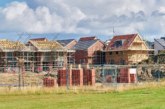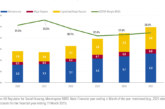 Affordable quality homes for housing associations — there is a solution, says Global Home Warranties.
Affordable quality homes for housing associations — there is a solution, says Global Home Warranties.
It is an inconvenient truth, but some developers do not like to build affordable homes. Many claim they will suffer from significantly reduced profit margins — taking their earnings below 20% — and this is the prime excuse given at the planning stage to try and avoid the issue, according to Global Home Warranties, but, says the company — it does not have to be like that.
Most developers do not have a choice and planners will insist that they will have to include some element of affordable properties into the mix, but with the pressure on margins it is inevitable that some will cut corners and deliver poor quality. This in turn can put even more of a strain on margins — a situation, claims Global that could be avoided by getting it right first time.
Current planning conditions state that developers building between five and nine homes must ensure 20% of them are affordable — more than nine, and then this figure rises to 30%. That figure can further rise to 40% for greenfield sites.
Recurring issues
Global, who partner closely with many of the country’s housing associations to provide a robust inspection and risk management process on site, are seeing many recurring issues in new-build affordable homes, such as faults in bay windows and sunrooms, issues with workmanship on cold bridging affecting energy efficiency, lead flashing problems on chimneys and lead tray installations incorrectly installed.
 “It is also common for us to note dirty cavities and ties along with a host of other problems, which mainly seem to be associated with affordable homes,” says Maurice Johnston, Managing Surveyor at Global Home Warranties. “We do not see anything like the same issues in quite the same number on more conventional houses.
“It is also common for us to note dirty cavities and ties along with a host of other problems, which mainly seem to be associated with affordable homes,” says Maurice Johnston, Managing Surveyor at Global Home Warranties. “We do not see anything like the same issues in quite the same number on more conventional houses.
“It is clear that developers are trying to cut costs when building affordable properties and this is understandable when margins are under attack, but at some stage they will have to go back and correct those problems, putting even more pressure on those margins. They would be better to work more closely with us, and our housing association partners, to get it right first time.”
Global work with clients before ground is broken, acting as another level of quality control. This works extremely well for developers helping to keep costs down, with Global able to inspect every new home on site throughout the build process with the same rigorous standards whether it is classified as affordable or otherwise. At the end of the build process, the company provides a comprehensive latent defects warranty supported by an ‘A’ Rated insurer, but more importantly it is giving the developer, the housing association and the end customer, total peace of mind and the confidence that the home has been delivered to the highest standard.
Tackling housing defects
According to a recent House of Commons report, there is growing evidence of more and more owners of newly built homes struggling to achieve satisfactory resolution when defects are reported to builders. This confirms the findings of an earlier survey by the charity Shelter, which revealed that, of the 241 English respondents that had bought a new house in the past 10 years, some 51% had experienced major problems as a direct result of the initial construction.
If these issues are not rectified, tenants and housing associations will continue to complain about quality, builders and developers will in turn rack up even more costs as they try to put right all of the problems adding even further pressure on margins, planning applications will be held up and the cycle will carry on — but it does not have to be like that.
Global is taking a proactive step in helping developers to solve these problems with its new Clerk of Works offering. Being on site on a weekly basis to monitor progress and workmanship will inevitably help to control costs.










